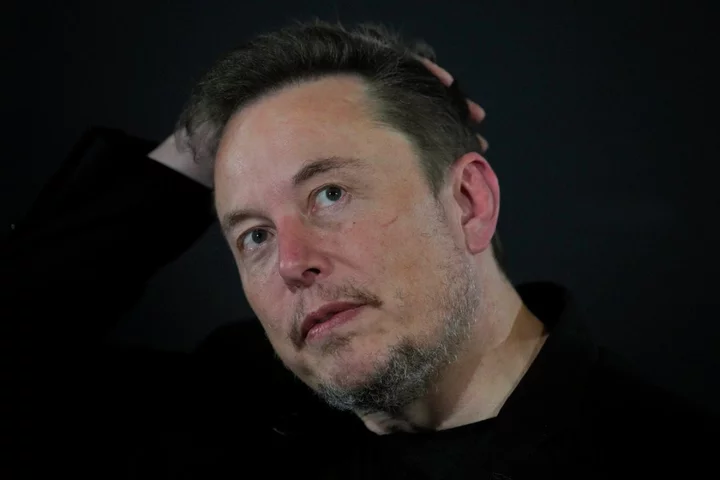
Elon Musk and Trump aide want journalists jailed over X Hitler exposé
An adviser to former president Donald Trump, Elon Musk and Missouri Attorney General Andrew Bailey have called for journalists at Media Matters to be jailed over a report which sparked an antisemitism row on X. The row began after Media Matters reported that adverts from big brands including IBM, Apple, Oracle and Bravo were running next to pro-Hitler and antisemitic content on Mr Musk’s social media platform. The revelation prompted a series of major companies – including Disney, Apple and IBM – to pull advertising from X, while Mr Musk responded by threatening to file a “thermonuclear lawsuit against Media Matters and all those who colluded in this fraudulent attack on our company”. X executive Joe Benarroch also pushed back, saying that the research strategy used by Media Matters to uncover the content placed next to company adverts was not representative of how regular people use its platform. The organisation had followed accounts that posted the content, then refreshed the X timeline until adverts appeared, Mr Benarroch claimed. “50 impressions served against the content in the article, out of 5.5 billion served the whole day, points to the fact of how efficiently our model avoids content for advertiser,” he said in a statement posted to X. “Data wins over allegations.” Mr Trump’s adviser Stephen Miller, whose politics have been described as far-right, has now also waded into the drama on X, claiming the report was “fraudulent” and suggesting journalists at the left-leaning non-profit group had committed crimes. “Fraud is both a civil and criminal violation,” he said. Mr Musk responded to Mr Miller’s post, chiming in: “Interesting. Both civil and criminal.” AG Bailey also joined in, saying: “My team is looking into this matter.” The Independent has reached out to Media Matters for comment. The organisation previously called Mr Musk’s lawsuit “meritless” and “an attempt to silence reporting that he even confirmed is accurate”. “Musk admitted the ads at issue ran alongside the pro-Nazi content we identified. If he does sue us, we will win,” the non-profit said. Since Mr Musk’s $44bn acquisition of X closed last year, he has relaxed moderation policies on X and cut many staff involved with safety on the platform. An X spokesperson told The Independent the company did not intentionally place the adverts next to the posts from the antisemitic accounts, which have now been demonetised, meaning advertising can no longer run on their profiles. Since taking over the company, Mr Musk has come under fire on multiple occasions over content that promotes antisemitism. On Wednesday, Mr Musk, the self-described “free-speech absolutist”, sparked outrage when he said a post which promoted an antisemitic theory was “the actual truth”. A social media user had appeared to push the “great replacement” conspiracy theory on X, claiming that Jewish communities “have been pushing the exact kind of dialectical hatred against whites that they claim to want people to stop using against them”. “I’m deeply disinterested in giving the tiniest s*** now about Western Jewish populations coming to the disturbing realisation that those hordes of minorities that support flooding their country don’t exactly like them too much. You want truth said to your face, there it is,” the post added. Mr Musk’s responded by writing: “You have said the actual truth.” His response received praise from white nationalist Nick Fuentes – while prompting widespread backlash from dozens more online, with many accusing him of antisemtism. He later responded to the accusations of antisemitism, insisting “nothing could be further from the truth”. “This past week, there were hundreds of bogus media stories claiming that I am antisemitic. Nothing could be further from the truth,” he wrote. “I wish only the best for humanity and a prosperous and exciting future for all.” This came after an earlier scandal in the days after the 7 October Hamas attacks on Israel, where Mr Musk was forced to delete a post in which he amplified an account widely accused of antisemitism and promoted debunked videos as reliable sources of information about the attack. Last year, advocacy organisation the American Jewish Committee called on Mr Musk to apologise over a controversial post that made a satirical comparison between Canadian Prime Minister Justin Trudeau and Adolf Hitler. Mr Musk has previously insisted that he is “pro free speech” but against antisemitism “of any kind”. In September, he threatened to sue the Anti-Defamation League – a century-old NGO that describes itself as the “leading anti-hate organisation in the world” – after the organisation accused him of antisemitism. Read More Elon Musk insists he’s not antisemitic after sharing antisemitic post DeSantis backs Elon Musk in dodgy response to antisemitic post Media watchdog hits back at ‘bully’ Elon Musk after he threatens lawsuit Homes close to new pylons to be offered £1,000 off bills a year under Hunt plans Elon Musk vows ‘thermonuclear lawsuit’ as advertisers flee X over antisemitism Disney, Apple suspend ads on Musk’s X after he agrees with antisemitic tweet
2023-11-20 22:18
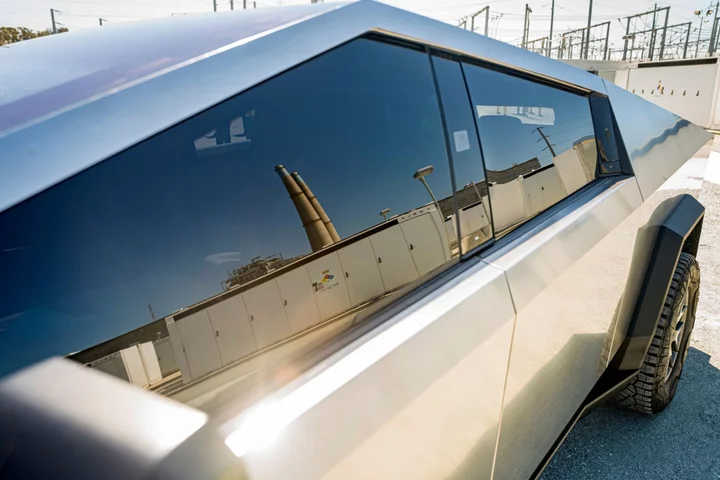
How the Tesla Cybertruck’s Price and Range Will Determine Its Fate
When Tesla Inc. starts delivering Cybertrucks to customers next week, it will answer a question with major implications
2023-11-20 21:24
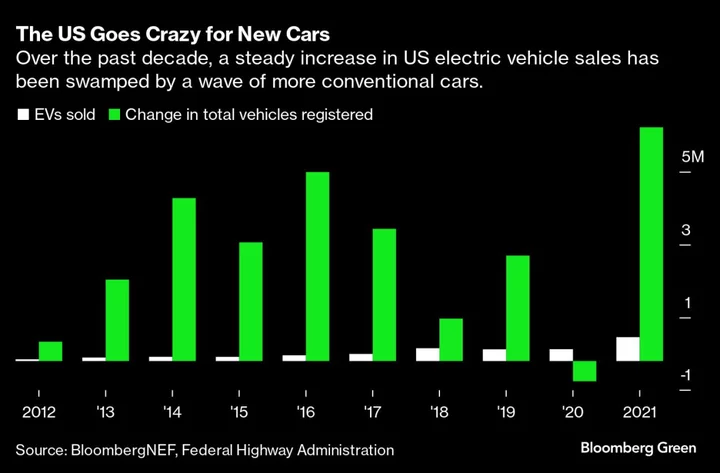
How to Boost EV Sales? Pay Drivers to Turn in Old Polluting Cars
Colorado drivers bought 9,446 electric vehicles in the most recent quarter, but Carrie Atiyeh is particularly psyched about
2023-11-20 20:52
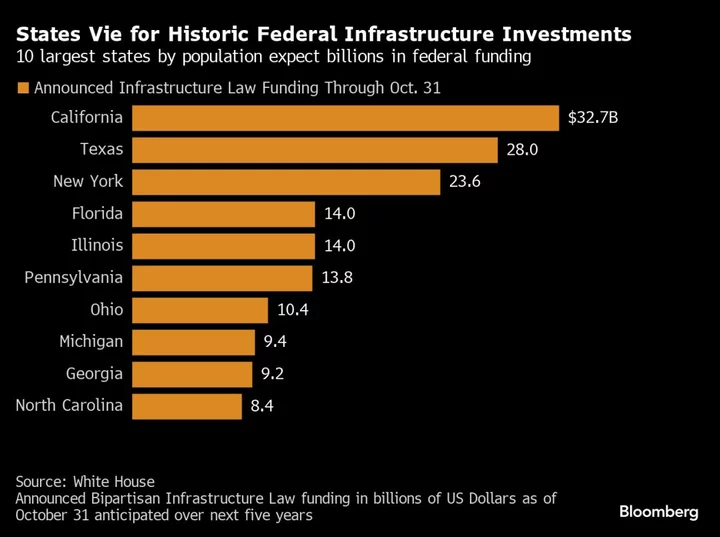
Pritzker Chases Every Federal Dollar With New $1 Billion EPA Bid
Governor J.B. Pritzker is going after every federal dollar to turn Illinois into a hub for new technologies,
2023-11-20 20:22
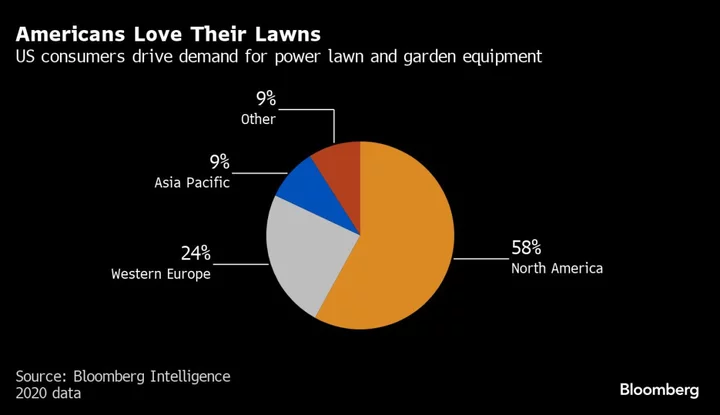
The Electric Revolution Is Coming for Your Lawn Mower
It’s a perennial annoyance during quiet weekends in US suburbia: The roar of the neighbor’s lawn mower, the
2023-11-20 19:21

Scholz Promises €4 Billion for EU-Africa Climate Initiatives
German Chancellor Olaf Scholz pledged €4 billion ($4.4 billion) for the Africa-EU Green Energy Initiative through 2030 and
2023-11-20 18:18
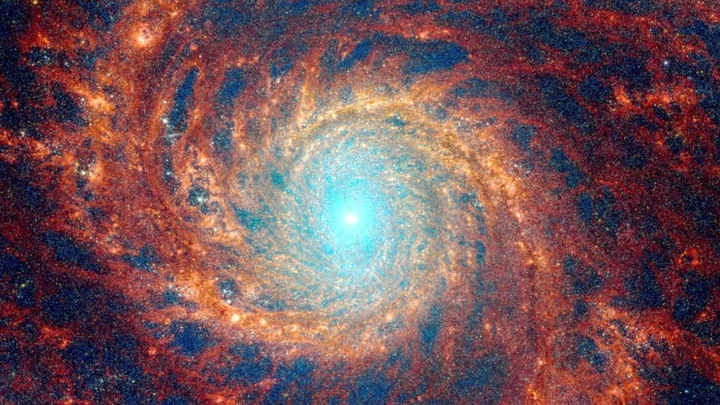
Scientists discover fluffy 'alien' planet where it rains sand
Experts have discovered a fluffy “alien” planet where it rains sand in stunning new observations from the James Webb Space Telescope. The bizarre-looking planet is officially known as exoplanet WASP-107b and has a cloud of silicate sand that exists high within its atmosphere giving it its strange fluffy appearance. NASA’s James Webb Space Telescope (JWST) has been responsible for some astounding findings since it was launched in 2021, including a mysterious galaxy shaped like a question mark. Now, observations made by the telescope have been used by experts who have been able to determine the atmospheric composition of the exoplanet that was pictured. A team of European astronomers found that water vapour, sulfur dioxide and silicate sand clouds existed in the exoplanet’s diverse atmosphere. The exoplanet WASP-107b is one of the lowest-density planets that astronomers are aware of. To put it into context, it is the same size as Jupiter, but has just 12 per cent of Jupiter’s mass. Thanks to its low density, it has allowed scientists to take a deeper look into the planet’s atmosphere, exploring 50 times deeper than would be possible with denser planets. The discovery of sulfur dioxide was a surprise because the host star it orbits only emits a small amount of high-energy light photons. But, its low-density atmosphere allows the photons to penetrate WASP-107b’s atmosphere where the chemical reaction that creates sulfur dioxide can occur. They also discovered that it essentially rains sand on the exoplanet due to the presence of clouds high in the atmosphere made up of fine silicate particles. Experts believe the clouds of sand form in the same way as rain does on Earth as the droplets continually fall and condense back into cloud form. The lead author of the study, Leen Decin from Katholieke Universiteit Leuven in Belgium, explained: “JWST is revolutionizing exoplanet characterisation, providing unprecedented insights at remarkable speed.” She added: “The discovery of clouds of sand, water, and sulfur dioxide on this fluffy exoplanet… is a pivotal milestone. It reshapes our understanding of planetary formation and evolution, shedding new light on our own solar system.” How to join the indy100's free WhatsApp channel Sign up to our free indy100 weekly newsletter Have your say in our news democracy. Click the upvote icon at the top of the page to help raise this article through the indy100 rankings.
2023-11-20 18:17
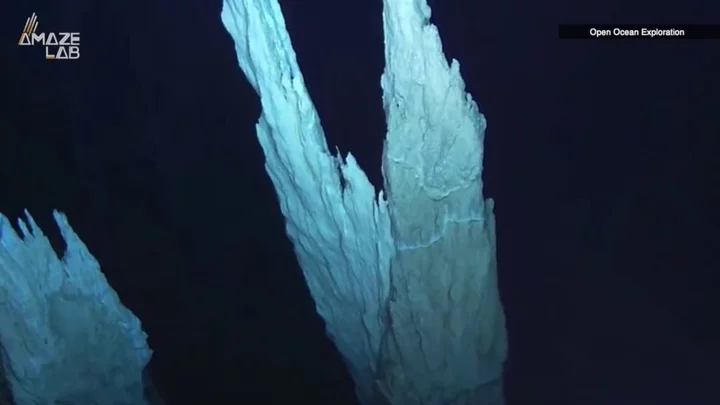
'Lost City' deep in the Atlantic is like nothing else we've ever seen on Earth
The reality of what lies within our oceans has fascinated people since time immemorial, so it’s no wonder we’ve created countless myths about the watery depths. But step aside, Atlantis, scientists have discovered a real Lost City beneath the waves, and this one is teaming with life. The rocky, towering landscape is located west of the Mid-Atlantic Ridge mountain range, hundreds of metres below the surface of the Atlantic Ocean, and consists of massive walls, columns and monoliths stretching more than 60 metres (200ft) tall. To be clear, it’s not the home of some long-forgotten human civilisation, but that doesn’t make its existence any less significant. The hydrothermal field, dubbed the “Lost City” upon its discovery in the year 2000, is the longest-lived venting environment known in the ocean, Science Alert reports. Nothing else like it has ever been found on Earth, and experts think it could offer an insight into ecosystems that could exist elsewhere in the universe. For more than 120,000 years, snails, crustaceans and microbial communities have fed off the field’s vents, which spout out hydrogen, methane and other dissolved gases into the surrounding water. Despite the absence of oxygen down there, larger animals also survive in this extreme environment, including crabs, shrimps and eels. Although, they are, admittedly, rare. The hydrocarbons produced by its vents were not created by sunlight or carbon dioxide, but by chemical reactions way down on the seafloor. This is how life on our planet may have originated some 3.7 billion years, and how it could be formed on others. "This is an example of a type of ecosystem that could be active on Enceladus or Europa right this second," microbiologist William Brazelton told The Smithsonian back in 2018, referring to the moons of Saturn and Jupiter respectively. "And maybe Mars in the past." The tallest of the Lost City’s monoliths has been named Poseidon, after the Greek god of the sea, and it measures more than 60 metres high. Meanwhile, just northeast of the tower, is a cliffside where the vents “weep” with fluid, producing "clusters of delicate, multi-pronged carbonate growths that extend outward like the fingers of upturned hands", according to researchers at the University of Washington. There are now calls for the Lost City to be listed as a World Heritage site to protect the natural phenomenon, particularly given humans’ propensity to destroy precious ecosystems. Back in 2018, it was confirmed that Poland had won the rights to mine the deep sea around the thermal field. And whilst, in theory, the Lost City would not be touched by such works, as Science Alert notes, the destruction of its surroundings could have unintended consequences. Sign up for our free Indy100 weekly newsletter Have your say in our news democracy. Click the upvote icon at the top of the page to help raise this article through the indy100 rankings
2023-11-20 17:45

Tired of Waiting for Climate Finance, Africa Sets Up Green Banks
With promises of climate finance from the developed world having largely remained unfulfilled, African nations are now looking
2023-11-20 16:23
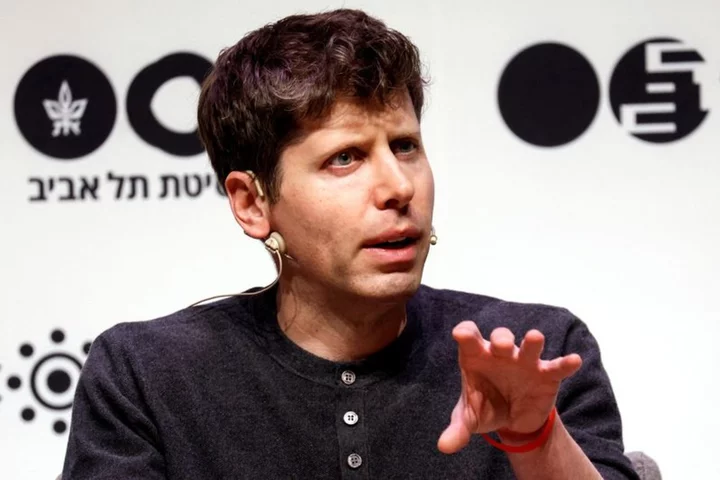
OpenAI execs invite Altman, Brockman to headquarters on Sunday -The Information
(Reuters) -Ousted OpenAI CEO Sam Altman and former President Greg Brockman joined executives at the company's San Francisco headquarters on
2023-11-20 05:47
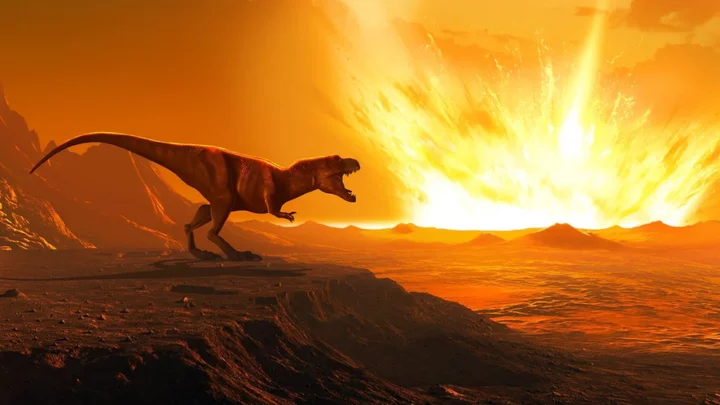
Dinosaurs still exist on other planets, say scientists
The dinosaurs may have been extinct for more than 65 million years but scientists have suggested that they could still exist as aliens on other planets. Researched published in the Monthly Notices of the Royal Astronomical Society suggests that dinosaurs might not only be on other planets but that we could also find them. The study suggests that if scientists researched compounds that are not currently on Earth but ones that were around during the age of the dinosaurs then it may yield some results. One key element that scientists believe could unlock what would be a groundbreaking discovery is oxygen. The levels of oxygen on Earth at the moment are around 21 per cent but during the time of dinosaurs it was higher at 30 per cent. This, in theory, allowed the dinosaurs to flourish and rule the planet for millions of years. The study suggests that if similar levels of oxygen can be discovered on faraway planets then the conditions could be right for alien like dinosaurs to exist. The study's co-author Lisa Kaltenegger said in a statement: "Modern Earth's light fingerprint has been our template for identifying potentially habitable planets, but there was a time when this fingerprint was even more pronounced — better at showing signs of life." She adds: "This gives us hope that it might be just a little bit easier to find signs of life — even large, complex life — elsewhere in the cosmos." One clue that could unlock this discovery which scientists are looking for are signs of a Phanerozoic stage on a planet which would allow creatures like dinosaurs to evolve. The study's lead author, Rebecca Payne of Cornell University, said: "The Phanerozoic is just the most recent 12 per cent or so of Earth's history, but it encompasses nearly all of the time in which life was more complex than microbes and sponges. These light fingerprints are what you'd search for elsewhere if you were looking for something more advanced than a single-celled organism." If they are successful in finding these conditions on other planets then Kaltenegger believes it could lead to the discovery of dinosaurs that have never been found on Earth. "Hopefully we'll find some planets that happen to have more oxygen than Earth right now because that will make the search for life just a little bit easier," she said. "And, who knows, maybe there are other dinosaurs waiting to be found." Sign up for our free Indy100 weekly newsletter Have your say in our news democracy. Click the upvote icon at the top of the page to help raise this article through the indy100 rankings.
2023-11-20 00:17
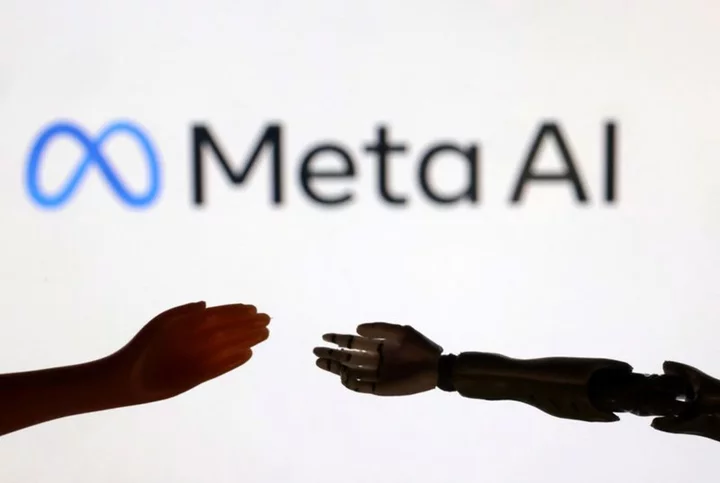
Meta moves members of its Responsible AI team to other groups
(Reuters) -Meta Platforms is dispersing the members of its Responsible AI team among other groups in the company where they
2023-11-19 06:22
